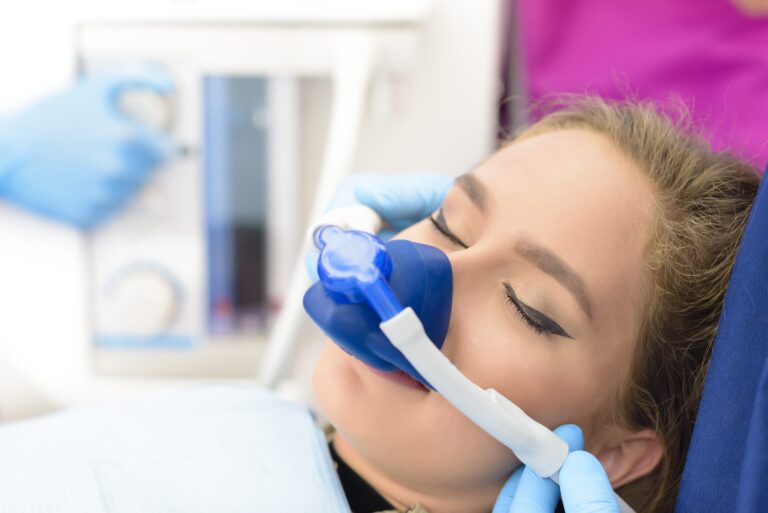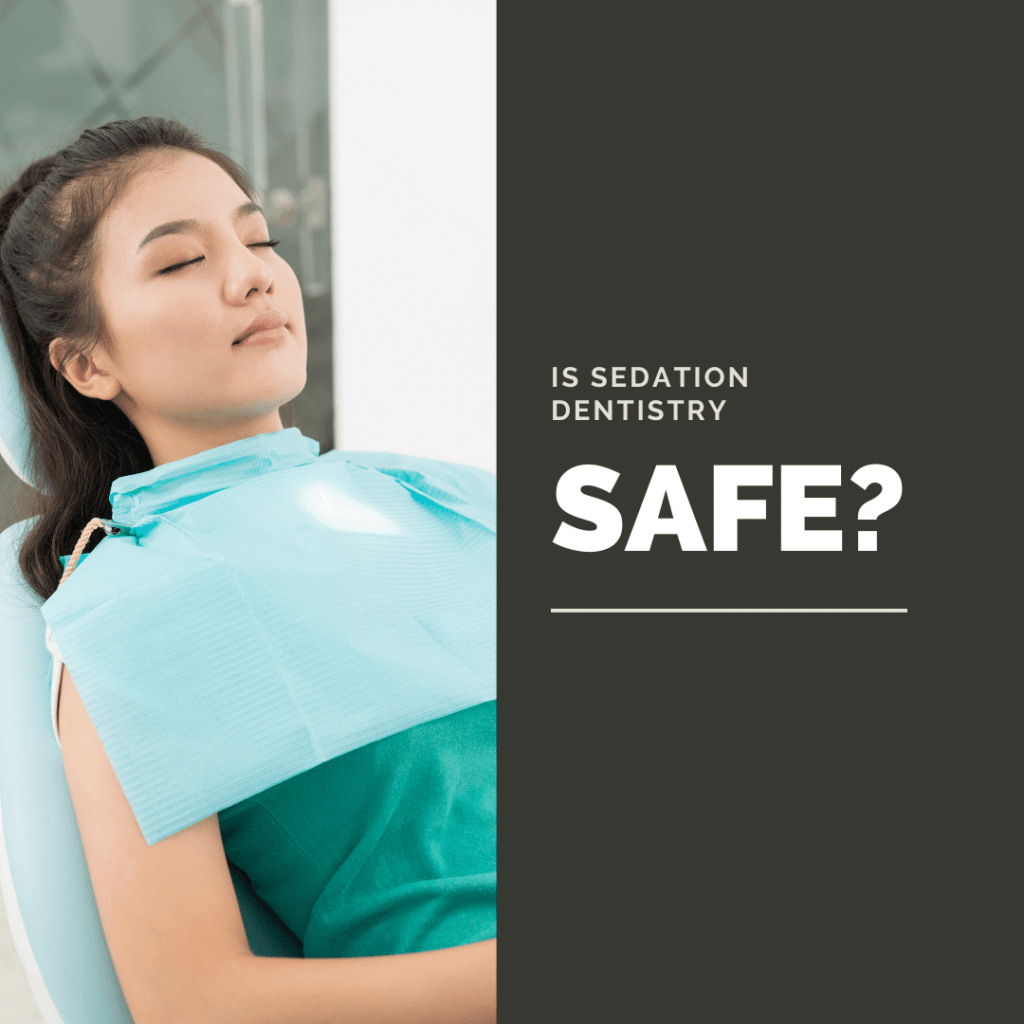Sedation dentistry has become a popular option for people who are anxious about going to the dentist. But is sedation dentistry safe? What are the different types of dental sedation? How is it administered? What should you expect when you are under sedation? Who is an ideal candidate for dental sedation? And who may be at an increased risk of complications? In this blog post, we will answer all of your questions about dental sedation!
What are the different types of dental sedation?
Dental sedation is administered by a trained professional, such as a dentist or anesthesiologist. The type of sedation you receive will depend on your level of anxiety and the procedure you are having done.
There are three main types of dental sedation: oral sedation, nitrous oxide (laughing gas), and IV sedation.
- Oral sedation is a pill that you take before your appointment. The pill will make you drowsy but you will still be awake and able to respond to the dentist.
- Nitrous oxide is inhaled through a mask during your procedure. The gas will make you feel relaxed and giddy (which is why it is known as “laughing gas”).
- IV sedation is administered through a vein in your arm. You will be in a twilight sleep during the procedure and may not remember anything afterwards.
What Should You Expect When Under Dental Sedation?
Your expectations when under dental sedation will depend on the type and level of sedation used. The different types of sedation are described above. Certain types, such as oral and IV sedation, can be used to achieve different levels of sedation such as:

- Minimal sedation – You will be awake but relaxed.
- Moderate sedation – You may slur your words and not remember the procedure.
- Deep sedation – You will be on the brink of unconsciousness.
Sedation affects the central nervous system and can cause drowsiness, confusion, and memory loss. You will be monitored by a dental professional during your procedure to make sure that you are safe and comfortable. With moderate and deep sedation, you will not be able to drive after your appointment, so please arrange for a friend or family member to give you a ride home. The effects of minimal sedation using nitrous oxide wear off once you stop inhaling the gas, so you can drive after.
Who is an Ideal Candidate for Dental Sedation?
Dental sedation is generally safe for healthy adults. The most important factor in determining whether dental sedation is right for you is your level of anxiety about the procedure. If you have a high level of anxiety, or if you have a low threshold for pain, sedation may be a good option for you.
Who is at an increased risk?
Certain medical conditions may increase your risk of complications from dental sedation. Be sure to tell your dentist if you have any of the following conditions:
- Heart disease
- Lung disease
- Kidney disease
- Liver disease
- Bleeding disorders
- Alcohol or drug abuse
Certain medications may also increase your risk of complications. Be sure to tell your dentist about any medications you are taking, including over-the-counter drugs and supplements.
Is sedation dentistry safe?
Dental sedation is generally safe, but as with any medical procedure, there are risks involved. Be sure to discuss the risks and benefits of dental sedation with your dentist before making a decision. And if you have any concerns during or after your procedure, don’t hesitate to contact your dentist!



